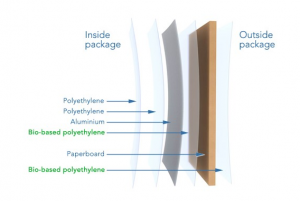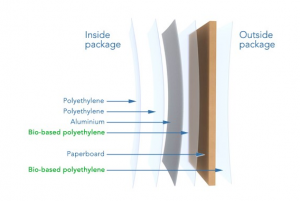In an industry first, all Tetra Pak packages produced in Brazil now use bio-based low-density polyethylene (LDPE).
Combined with paperboard, the use of bio-based LDPE from sugarcane increases Tetra Brik Aseptic 1000ml Base packages’ renewable content to 82%, said Tetra Pak in its announcement on 28 April.

In February Coca-Cola Brazil became the first company to use the new packages for its Del Valle juice beverages, previously sold in regular cartons. The pilot is now being extended to include all 150 customers that source from Tetra Pak Brazil, which together total more than 13 billion packs every year.
“We are particularly proud to be the first in the industry to use bio-based LDPE in carton packages,” said Charles Brand, vice-president marketing and product management at Tetra Pak.
“We believe that the best way to protect the sustainable future of the packaging industry and meet the global challenge of a growing scarcity of fossil-fuel based raw materials is to further increase the use of renewable resources. We have set an ambition to develop a 100% renewable package, building from an average of 70% today. This launch is an important step in that direction.”
Produced by Braskem, one of the world’s leading biopolymers producers, bio-based LDPE used in Tetra Pak cartons has the same physical and chemical properties as fossil-fuel derived polyethylene. Customers can switch to the new packaging materials without modifying their machines.
Tetra Pak has initially prioritised the Brazilian market but intends to expand the offer to more markets.



